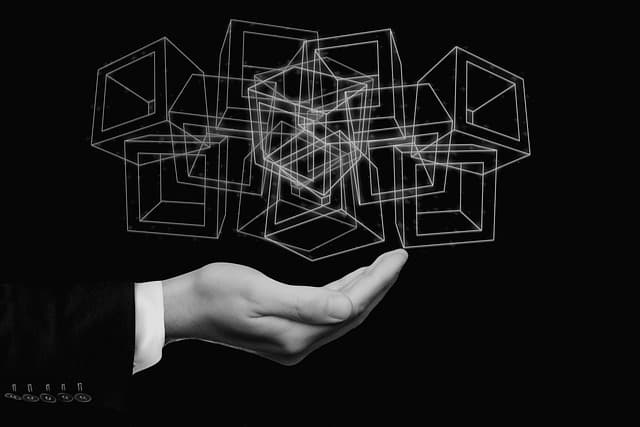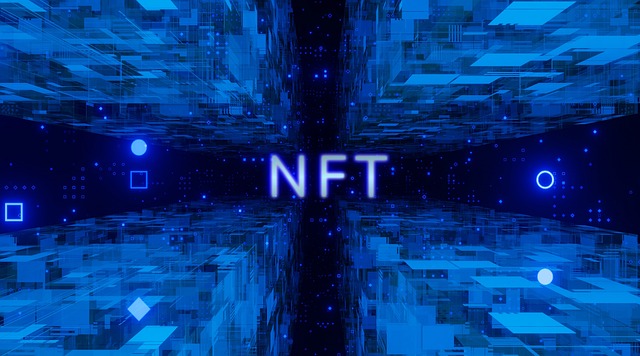Prospects for the Use of Blockchain in Different Spheres

Today, blockchain is used in many areas beyond sending and receiving digital money. However, I would like to stress that most such projects still exist in an idea format: on paper or in the initial process of development. However, some are already working and showing good results.
Blockchain opportunities in the IT sphere
Being an offspring of IT, blockchain has many uses here, so I will mention some of them.
Data management and security. Because of its centralized nature, even the cloud architecture on which most of today’s security technology is based is vulnerable. Individual servers must constantly send and receive credentials, and each of them could be the weak link, putting the whole system at risk.
Blockchain, on the other hand, works fully automatically, so that interconnected devices are managed by systems and programs rather than people and supercomputers. Thus, full data security is achieved: because of the complex encryption and decentralized structure (just remember the bitcoin algorithm – SHA256 – and 64-digit keys), as well as technical absence of hacking, blockchain looks like a panacea in a modern world full of digital threats.
It is always easier and cheaper to prevent a threat than to deal with its consequences. At present, electronic voting in elections is used only in Estonia, but it is very likely that this will change dramatically in the near future.
IBM and Samsung are working on the Adept project, which will use blockchain-like technology to create a decentralized network of a huge number of different Internet of Things (IoT) devices that can communicate with each other.
Blockchain’s potential in retail
Here, the technology has a huge future. Blockchain was recently recognized by the World Economic Forum as one of six global trends that could have a huge impact on society over the next decade.
For example, Walmart recently announced the introduction of blockchain in the purchase of imported goods: a new blockchain-based logistics tool was developed by the Hyperledger consortium and allows you to monitor the entire path of products from supplier to supermarket, containing data about expiration dates, storage and transportation requirements, and so on.
Another example is the Japanese retailer Rakuten, which acquired Bitnet to create a blockchain lab.
Finally, I would like to mention once again the well-known hightech giant IBM, which announced a project six months ago to explore the use of blockchain technology to control food supplies and improve food safety. Many retailers and food companies have already joined the project.
Blockchain opportunities in education
It is possible to integrate blockchain into document storage and control systems: of course, the most important advantage here is that the data recorded in the system cannot be manipulated; information can be added, but not overwritten. At the same time, the authenticity of the document is easily traceable, because everyone can see who recorded it and when.
Few people have used it in practice so far, and one of the pioneers is the University of Nicosia in Cyprus: it is used there to store diplomas and certificates. Even more interesting is the fact that this university was the first to accept cryptocurrency as a tuition fee, and the degree of this university is recognized around the world. The initiative has already been taken over by the Open University in the UK, the Massachusetts Institute of Technology (MTI) and others.
Blockchain’s potential in the legal field
We keep in mind that when data is stored in a blockchain, it cannot be changed. This allows blockchain to be used as documentary evidence to confirm the transfer of digital assets and to store information about the owner of the actual property.
This allows, for example, the Swedish National Land Survey to develop a blockchain-based pilot system in the near future to digitize the processes for buying and selling real estate, as well as for regulatory compliance – recording all actions and results in blockchain could successfully act as an audit trail for regulators. The latter can also access an internal blockchain to view a financial institution’s information. All of this could allow the latter to provide more effective regulatory reporting.
Blockchain opportunities in the medical field
Blockchain in the medical field is literally a “lifesaver,” at least because the medical industry has long been cracking at the seams when it comes to data processing. However, it is not a panacea – there are problems here: blockchain is good for small amounts of information, but, as we all know, medical data is extremely vast.
Nevertheless, this was not an obstacle to the creation of the Healthureum system: full information about each user of the system takes up all the free space of the ecosystem, because the bandwidth and capacity are incredibly large. In general, instead of being the bearer of complete patient information, the latest blockchain-based technology in healthcare would act as a mechanism to control and record data in relation to changes in medical records.
In other words, the solution was that the data would be stored off-blockchain, and the links that would lead to the huge files would be located in the blockchain.
As for data encryption, there are many different projects to solve this problem: for example, delimiting the type of access to patient information, or implementing a closed blockchain data set with access only to the regulatory authority or other regulatory organization.
Unlike other fields, blockchain in medicine is still far from even the initial stage of widespread use. This is not to mention the lack of a legal framework in most countries in principle.
Blockchain’s potential in entertainment
Finally, let me talk about the prospects for blockchain in entertainment. The first thing that comes to mind here is the brilliant possibility of circumventing gambling bans in many countries by not recognizing cryptocurrency as currency or property. Cryptocurrency casinos in general and bitcoins in particular are currently multiplying at the speed of light, which indicates a high demand for them.
But it’s not just about gambling: For example, even a huge industry like music (audiovisual production; to put it simply, artists and bands) is already interested in blockchain.
Blockchain can store data about all transactions, encrypted ownership data, financing data, and, even better, execute smart contracts (e.g., code-level exchange of value without intermediaries). For example, Stem is a blockchain-based payment and distribution platform for audiovisual products: you can publish content, manage contracts and make payments in one place.
This service and similar ones can be called a great platform to be used by little-known aspiring musicians. Micro-payments with low commissions, more secure sales and consumption data create an interesting business model.
The possibilities of blockchain in everyday life
To date, no one has dared to implement blockchain into everyday routine, but such opportunities exist in SP (Smart Property), for example.
For example, if one embeds a public key in an ordinary car and transfers the corresponding private key to the owner, it would be possible to use a system of car sales in which the public key of the car is transferred to the new owner and the cryptocurrency amount is transferred to the opposite side: in this case, the blockchain confirms ownership and the amount paid.
The good thing about this scheme is that the sale-purchase transaction will not require any intermediaries with a power of attorney and a lot of paperwork. It is technically extremely difficult (read: impossible) to cheat or tamper with blockchain, and the entire buying and selling process can be automated. All the seller and buyer would need to do is meet their smartphones at the car.
So far, due to the confusion and complexity of the laws related to autonomy (as well as the illegality of cryptocurrencies in most countries as money), such a scheme – from the category of fiction, but such a fantasy, which may well be implemented in a few years: sooner or later there will be a corresponding ICO-project, and then, most likely, it will be approved at the state level, because it will require removing some responsibility from government agencies.
Conclusion
I haven’t considered even half of the opportunities that blockchain offers the world in this article: in fact, there are many more. But even from this “meager” data, one can imagine how rich and flexible this world of possibilities is and how it is available for application in almost all areas of life. Blockchain is indeed a very promising technology, and we will see that in the coming years.





